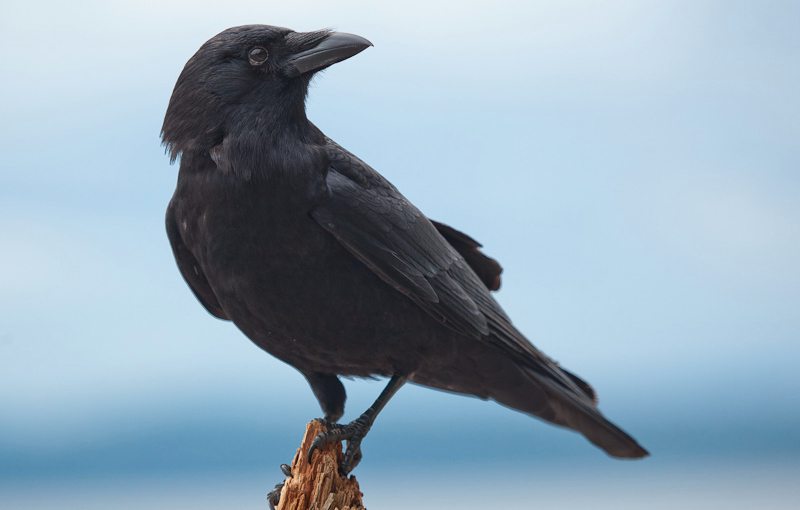Crows
Episode #8 of the course “The Smartest Animals on Earth“
Considered some of the world’s smartest birds, crows operate with brains about 1/1000th the size of an adult human’s. Crows have adapted smarts that make sense in a crow’s life—they memorize and coordinate events over distances, they develop tools, and they teach their young lessons to pass down to future generations.
One of the animals most revered and recognized for their wits, a crow appears in an Aesop fable solving a puzzle to get a drink of water from a pitcher. When the story was reproduced as an experiment, many crows completed the task easily.
Crows have impressive, extensive memories that allow them to map out great distances and remember details about their territories. Some crows in cities memorize the routes of garbage trucks for miles and will follow them to obtain any easily-accessible scraps.
City crows are also known to use their environment by dropping nuts into a busy street to be cracked, then waiting until a red light to retrieve the item. They memorize city traffic light patterns and teach them to other crows. They remember the faces and actions of people for years, and not only do they remember to avoid dangerous places, they also communicate the danger to other crows.
Sly and greedy, crows are social birds, but they don’t like to share. Like many other animals, crows keep their food in small stashes, but unlike many other animals, crows watch one another to see where they hide food. Because one crow may suspect another is watching, he might hide the food in his chest feathers but pretend to hide it in the stash, then go to a second location to really hide the food. But because crows are so smart, the watching crow might suspect the trick and follow the other crow to make sure.
Share with friends

